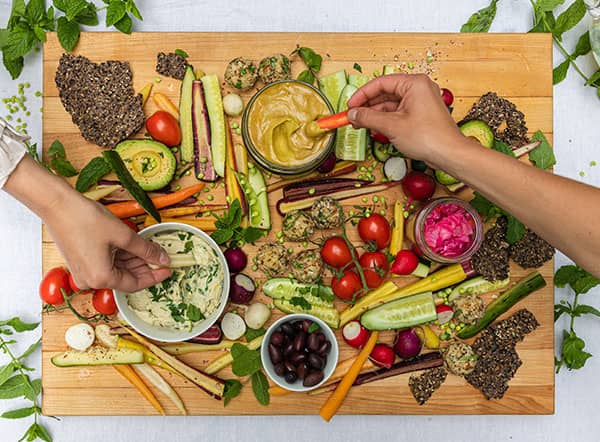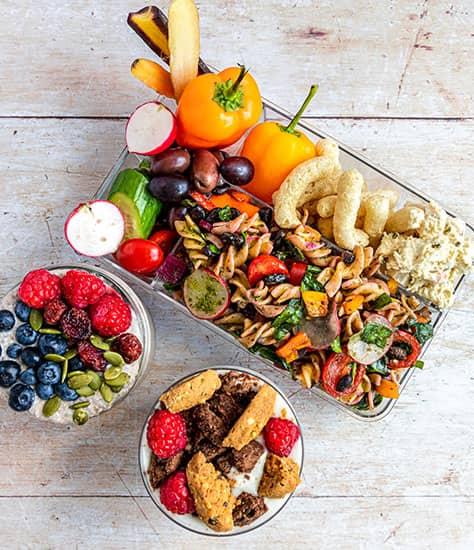What are carbs?
Carbohydrates are your body’s main source of energy. They fuel your brain, kidneys, heart, muscles, and central nervous system. Carbohydrates include starches, sugars, and fiber and come in two forms: simple and complex. Simple carbohydrates include sugars like table sugar and corn syrup. Complex carbohydrates include starches such as rice, oatmeal and potatoes. Complex carbohydrates are generally considered the healthiest option since they raise blood glucose levels the slowest.
How Many Carbohydrates Do You Need?
The USDA recommends that you should get between 45-65% of your daily calories from carbohydrates. Since carbohydrates contain four calories per gram, you should consume 225 to 325 grams of carbohydrates on a daily basis if you’re following a 2000-calorie diet.
Sources of Carbohydrates
The best carbohydrates are micronutrient-dense whole foods such as whole fruit, unprocessed grains, winter squash, beans, and potatoes.


Fiber
Unlike other food components, fiber isn’t digested by your body because humans don’t produce the necessary enzymes to digest fiber. Instead, it passes through your gastrointestinal tract intact, keeping you regular and preventing constipation. Fiber is classified into two categories: soluble, which dissolves in water, and insoluble, which doesn’t dissolve.
Soluble fiber
Soluble fiber helps lower blood cholesterol and glucose levels. Soluble fiber is found in oats, peas, beans, apples, citrus fruits, carrots, barley and psyllium.
Insoluble fiber
Insoluble fiber promotes the movement of material through your GI system and helps prevent constipation. Insoluble fiber is found in bran, nuts, beans and vegetables.
Most plant-based foods such as oatmeal and beans contain both soluble and insoluble fiber.
Daily fiber recommendations from the Institute of Medicine:
| Age 50or younger | Age 51 or older | |
|---|---|---|
| Men | 38 grams | 30 grams |
| Women | 25 grams | 21 grams |








